Honor is flashed off exploit, so we say;
And those strokes once that gashed flesh or galled shield
Should tongue that time now, trumpet now that field,
And, on the fighter, forge his glorious day.
On Christ they do and on the martyr may;
But be the war within, the brand we wield
Unseen, the heroic breast not outward-steeled,
Earth hears no hurtle then from fiercest fray.
Yet God (that hews mountain and continent,
Earth, all, out; who, with trickling increment,
Veins violets and tall trees makes more and more)
Could crowd career with conquest while there went
Those years and years by of world without event
That in Majorca Alfonso watched the door.
Gerard Manley Hopkins, in honor of Saint Alphonsus Rodriguez, lay brother of the Society of Jesus
Today, October 30, we celebrate the feast day of Saint Alphonsus Rodriguez (1533-1617), great mystic, and example of profound humility. Tragedy and challenge were constants in his early life, but this holy man found happiness and contentment through simple service and prayer.
Alphonsus was born in Segovia, Spain, the son of a wealthy merchant. From childhood he was devoted to the Blessed Virgin Mar, loving her as his mother. This childlike devotion to her was the main reason for his sanctity. Following his first Holy Communion, Alphonsus began studying with the Jesuits, and expressed his desire to enter the order upon reaching the age of admission. At the acceptable time, Alphonsus traveled to Alcala, where he began his studies, but was summoned home upon his father’s unexpected death. His mother, a strong and pious woman, decided to maintain the family business, but after a short time, declared that Alphonsus would be the one to manage it. Obediently, he re-settled in Segovia, committing himself to managing the family textile business at the age of 23. He married, and with his wife, produced three children.
However, again tragedy struck, and within three years, his mother, wife, and two of his three children all died. Due his poor management, business suffered, and he was struggling to pay his employees. In light of all his loss, Alphonsus re-assessed his life and felt the call of the Lord. He sold the business, and together with his toddler son, moved into the home of his sister where he spent his days in disciplined prayer and meditation.
“In failure,” he said afterwards, “I saw the majesty of God. I recognized the wickedness of my life. I had not been concerned about God, and in that state, I was on the verge of my eternal perdition. I saw the sublime grandeur of God from the dust of my misery. I imagined myself as a second David, and the Miserere was the expression of my state of soul.”
After some years, his remaining son died, and Alphonsus was left alone. He believed these calamities must have come upon him for his sins, and he developed a great horror of sin. Saint Alphonsus asked God to let him bear even the torments of hell on earth, rather than fall into a single mortal sin. He offered himself entirely to God, for whatever He might desire of him, and he began a life of severe penance. He had already resolved, "I will never again follow my own will for the rest of my life," a motto he lived until his death.
Nearly 40, having little education, poor, and of poor health due to the tolls his rigorous and tragic life had taken on him, Alphonsus was not a typical candidate for religious life. In fact, he was unlikely to be accepted into any religious order. Nonetheless, he sought to join the Jesuits—the calling he had felt as a child and young man, and was eventually (on the third try) admitted as a lay brother to the order. First, he was expected to improve his education, which he attempted to do at the college of Barcelona. However, the work was too difficult for him. Eventually, the Jesuits provided him education, although he was taught in the classroom with the children!
Alphonsus underwent novitiate training and was sent to the Montesion college on the island of Majorca. For the next forty-five years, he served as the doorkeeper and hall porter-- a duty which involved delivering packages, seeing to the lodging of travelers, greeting guests to the college, and dispensing alms to the poor. When not greeting guests and humbly serving at the most menial post, he could be found at prayer or in silent meditation. Although he was overlooked by some, his holiness and prayerfulness attracted many others to him, including Saint Peter Claver, then a Jesuit seminarian. Local leaders would also come to the door of the college, seeking advice of the humble and holy man. He had a special gift for spiritual conversation. His superior affirmed that no spiritual treatise produced as much spiritual good as contact with that lay brother. He always responded to every request in his large correspondence. His fame spread and he became known as the Doctor of Majorca.
While we may view the life of a porter as simple and possible boring, Saint Alphonsus approached his work with holiness and joy. It was repetitious and monotonous work, demanding much humility, but Rodriguez imagined everyone who knocked at the door to be the Lord and greeted everyone with the same smile he would have given God. When the doorbell rang, he could be heard exclaiming, “Lord, I’m coming!” as he hurried to greet the arriving visitor.
Saint Alphonsus was ever obedient (once attempted to cut and eat his plate at the order of his superior), and engaged in extreme austerities and penance. He refused to sleep in a bed, instead remaining sitting in a chair at night—until ordered, at age 60, to stop this practice by his superiors. Despite his obedience, he was not spared the trial of being misunderstood and underestimated by his superiors, but he found only joy and consolation in the public reproaches he received. He wrote in his book of maxims: “In the difficulties which are placed before me, why should I not act like a donkey? When one speaks ill of him — the donkey says nothing. When he is mistreated — he says nothing. When he is forgotten — he says nothing. When no food is given him — he says nothing. When he is made to advance — he says nothing. When he is despised — he says nothing. When he is overburdened — he says nothing... The true servant of God must do likewise, and say with David: Before You I have become like a beast of burden.”
Saint Alphonsus was especially devoted to Saint Ursula, as well as the Immaculate Conception. He experienced many spiritual consolations, and he wrote religious treatises which were extremely accessible, given their simple style (but sound doctrine). He is reported to have healed the sick through his fervent prayers.
Saint Alphonsus was aware of his educational limitations, but looked to the grace of God as explanation of his ability to serve. He said, “Insofar as the consciousness of my own debility became keen in me, I felt the grandeur of the Lord.” Saint Alphonsus died following a long illness. The three nights before his death—following his last Eucharist—were spent in visionary ecstasy. His funeral was attended by Church and government leaders.
As a humble porter, Saint Alphonsus was always appreciated for his kindness and holiness; however, it was only after his death that his memoirs revealed the quality and depth of his prayer life. It was then that others learned that the humble Jesuit who had been gifted by God with remarkable mystical graces, ecstasies and visions of our Lord, our Lady and the saints.
Prayer for New Life through Death to Sin (Saint Alphonsus Rodriguez)
Though Your most holy passion and death, I beg of you, Lord, to grant to me a most holy life, and a most complete death to all my vices and passions and self-love, and to grant me sight of your holy faith, hope and charity.
O God, in the faithful service of our brother Alphonsus You have shown us the way to joy and peace. Make us ready and watchful companions of Jesus, who became the servant of all, and now lives and reigns with You and the Holy Spirit, one God, for ever and ever. Amen.
Day 303 of 365
Prayer Intentions: Increase in vocations; Reform and renewal of the clergy.
Requested Intentions: Freedom to immigrate (D); End to debt (N); Restoration of a marriage (J); Complete recovery of son (P); Recovery of parish priest, health of mother, conversion of son (J); Successful employment, end to depression (J); Successful immigration and employment (S); Conversion of an unloving daughter (M); Recovery of husband, health of mother, economic freedom (R); Freedom from depression, restoration of family relationships (N); Restoration of a relationship (J); Healing of friends from cancer (J); Complete healing of a friend with pancreatic cancer (J); Recognition of God’s Will; Obedience in vocation (J); Successful employment (M&I); For a son who struggles (S); Conversion (P); For family, peace, and social justice (J); Son’s employment (K); Discernment of the Lord’s will (A); Mother’s full recovery from a stroke (K); Employment (P); For family’s prosperity and employment (M); For a husband’s addiction (F); Health in a relationship, literary representation (D); For a mother struggling with cancer (P); Employment and financial assistance (L); End to work troubles, return to health (R); For a husband’s recovery from alcoholism (M); Healing of a father following stroke (S).



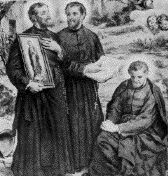
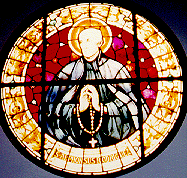

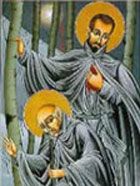
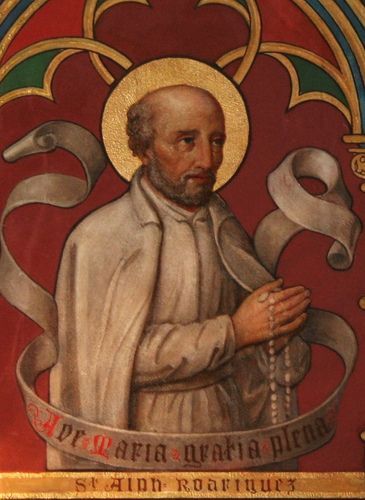

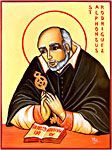

No comments:
Post a Comment
Thanks for leaving a comment. If you wish to submit a prayer request, however, please do so above, using the "Contact" tab.